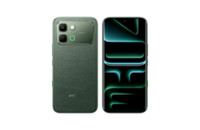Abu Hassan: ‘People are now more prudent before upgrading.’ — ZHAFARAN NASIB/The Star
GEORGE TOWN: The number of smartphone users in Malaysia grew to almost 100% during the Covid-19 pandemic, but a technologist warns of over-dependence on mobile gadgets to the point of causing social and health problems.
Universiti Sains Malaysia senior lecturer Dr Mohd Heikal Husin said based on the recent Handphone Users Survey 2021 by the Malaysian Communications and Multimedia Commission, the overall penetration rate of smartphones in the country was 94.8%.





